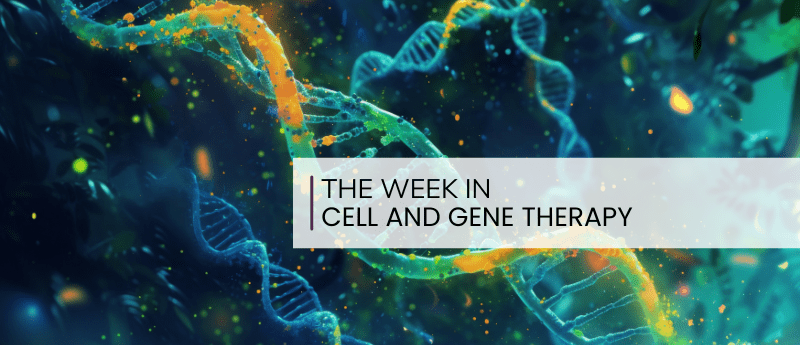What is Medicinal Chemistry?

Medicinal chemistry, also known as pharmaceutical chemistry, is a branch of chemistry focused on the development of new drugs and the improvement of existing ones. It is an interdisciplinary field that combines chemistry, biology, and pharmacology.
Practitioners work to design and synthesize compounds that can treat diseases, manage symptoms, and improve a patient's quality of life. They optimize the structure and properties of molecules to improve interactions with target molecules and compounds as well as their metabolism, toxicities, and drug delivery dynamics to create selective medicines with limited side effects for recipients. Medicinal chemistry is both data-driven science and an art, in which creativity and knowledge is combined to make something new.
What is Medicinal Chemistry?
Medicinal chemistry, also known as pharmaceutical chemistry, is a branch of chemistry focused on the development of new drugs and the improvement of existing ones. It is an interdisciplinary field that combines chemistry, biology, and pharmacology.
Practitioners work to design and synthesize compounds that can treat diseases, manage symptoms, and improve a patient's quality of life. They optimize the structure and properties of molecules to improve interactions with target molecules and compounds as well as their metabolism, toxicities, and drug delivery dynamics to create selective medicines with limited side effects for recipients. Medicinal chemistry is both data-driven science and an art, in which creativity and knowledge is combined to make something new.
What Does A Medicinal Chemist Do?
Medicinal chemists work to discover and develop new medications. They are scientists who specialize in designing, synthesizing, and optimizing chemical compounds to be formulated as drugs used to treat diseases and conditions, manage symptoms, and improve quality of life.
Medicinal chemists apply their chemistry, biology, and pharmacology knowledge to identify, design, synthesize, and optimize compounds with the desired properties. They seek to understand the molecular mechanisms of disease and the interaction between drugs and the body. They also use computer modeling and simulation techniques to predict the properties of potential new drugs.
Once a promising compound has been identified, medicinal chemists optimize its chemical structure to enhance potency, selectivity, and safety. They evaluate the compound's biological activity, pharmacokinetics, and toxicity to ensure that it is effective and safe for humans. They work closely with other scientists, including biologists, pharmacologists, and clinicians, to advance the drug discovery process.
Medicinal chemists also play a critical role in developing drug delivery systems. They develop formulations and delivery methods that improve the efficacy and safety of drugs. They develop drug delivery systems targeting specific tissues or cells, thereby reducing side effects and improving therapeutic outcomes.
What Skills Do Medicinal Chemists Need?
Medicinal chemists are highly skilled professionals responsible for discovering and developing new drugs and therapies. Some of the critical skills and attributes essential for success in this field inculde:Strong knowledge of chemistry: Medicinal chemists need to have a deep understanding of chemistry, including organic chemistry, biochemistry, and physical chemistry. They must be able to apply this knowledge to the design and synthesis of new drug candidates.
Analytical and problem-solving skills: Medicinal chemists must be able to analyze complex data, identify trends and patterns, and use this information to solve problems and optimize drug candidates.
Creativity and innovation: Discovering new drugs requires creativity and innovation. Medicinal chemists must be able to think outside the box and develop novel approaches to drug discovery and development.
Attention to detail: Developing new drugs is a highly regulated process requiring meticulous attention. Medicinal chemists must be able to follow strict protocols and ensure that all aspects of drug development are conducted with the highest level of accuracy and precision.
Communication skills: Medicinal chemists must communicate effectively with other scientists and stakeholders, including biologists, pharmacologists, clinicians, and regulatory agencies. They must be able to explain complex scientific concepts clearly and concisely.
Teamwork and collaboration: Drug discovery and development are highly collaborative processes that require teamwork and collaboration across multiple disciplines. Medicinal chemists must be able to work effectively with other scientists and researchers to advance the drug discovery process.
Adaptability and resilience: Drug discovery is a complex and challenging process that often requires medicinal chemists to adapt to changing circumstances and overcome unexpected obstacles. They must remain resilient in the face of setbacks and challenges.
Event : International Top Pharmaceutical
Awards Visit: toppharmaceutical.org
Award Nomination: x-i.me/tpanom
Award registration: x-i.me/awrdreg
Member Nomination: x-i.me/tpmem
Member Registration: x-i.me/tpmem
For Enquiries: pharmaquerys123@gmail.com
Get Connected Here
--------------------------------- ---------------------------------
Pinterest: pinterest.com/pharmaemail/
Twitter: x.com/TopPharmaaward
Instagram: instagram.com/toppharma23/
Youtube: youtube.com/channel/UC2MR7HcTZsuBpTgmJzugU_g
Blogger:blogger.com/u/1/blog/stats/week/120290426853650288
Tumbler : tumblr.com/blog/top-pharmaceutical-awards-23


Comments
Post a Comment